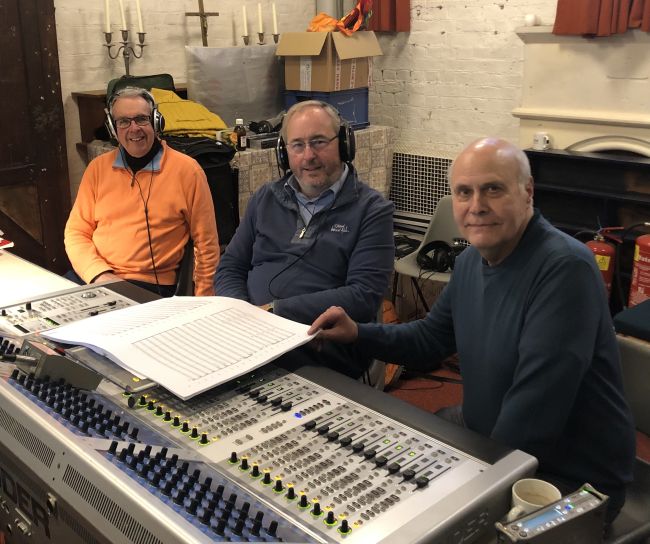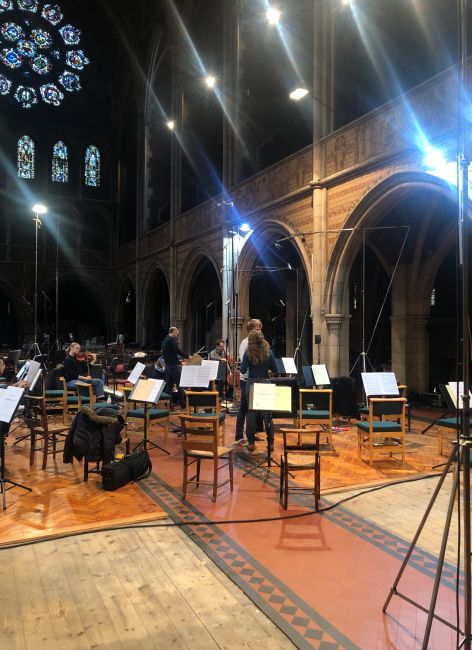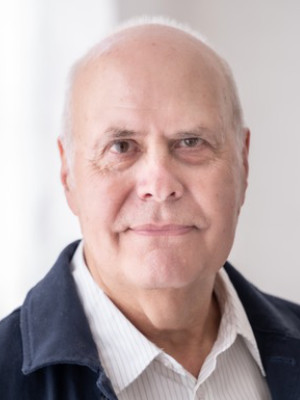The Wilson Effect
The conductor John Wilson has recorded Berkeley’s ‘Divertimento’ with the Sinfonia of London, and Adam Pounds was there – as an interested party

It was in November that I took the tube to Kilburn Park (two stops past Warwick Avenue and the Berkeleys’ old home) to attend a recording session with the Sinfonia of London conducted by John Wilson. The programme consisted of the Divertimento in Bb by my teacher, Lennox Berkeley, Le Tombeau de Couperin by Ravel who was a friend and mentor of Lennox, and my own newly-composed Third Symphony.
The recording took place in St Augustine’s Church – the so-called ‘Cathedral of North London’. On my arrival I met John in the vestry, which had been set up as the control room, and he introduced me to Ralph Couzens, chief engineer and managing director of Chandos Records, and Brian Pidgeon who was producing the sessions.
Before we started, I took the opportunity to wander around the church and meet some of the musicians who are among the best in Europe, and include front-desk players of major orchestras and prominent chamber musicians. I was immediately encouraged by their enthusiasm for the recording project. The church itself is vast and cavernous, and the lighting and set-up of the orchestra created a dramatic theatre of sound.
First up on the stand was the Berkeley Divertimento. This is a work I know well and love, as I have performed it with the Academy of Great St. Mary’s in Cambridge, and wrote about it in the 2019 Journal. This fine work is lightly scored and yet it is wide-ranging in its emotional effect and colour and immediately appealing.
A few days earlier, I had a conversation with John about my new symphony, and I was struck by the intense study that he devotes to his scores in order to fulfil the expectations of their composers. It would be fair to say that this period of preparation is as important to him as the actual process of recording. His meticulous attention to detail is very much present in the sessions, and in this he is ably assisted by Brian Pidgeon who clearly knows the number of takes that are required to deliver a five-star recording.
John is very much a team player. He knows his musicians on a personal level, and is able to extract the very best from them, always concentrating on the symphonic whole. To this extent he is not a dictator although he has a clear picture in his mind of the sound world he wishes to create. There were moments in the slow second movement (‘Nocturne’) of the Divertimento which provided a wonderful example of the string sound that he is able to conjure up. It’s his belief that each player should understand the overall picture of the performance, and because he sees them as equal stakeholders he allows them to express themselves without hindrance. In this way the solos add a characteristic individuality which enhances the beauty of the whole canvas.

This will be the second collaboration of Chandos and the Wilson/Sinfonia of London featuring a Berkeley work – the first was the Serenade for Strings (a performance praised by Music Web International for its ‘impeccable tuning and clear textures’), and I am sure that listeners will be delighted with the results. There is a vitality and elegant playfulness in the opening ‘Prelude’ of the Divertimento, whereas the darkness of the writing in the ‘Nocturne’ is very haunting. One of the double-bass players commented to me that after the lightness of the first movement he ‘wasn’t expecting to be taken to such a dark place’. The ‘Scherzo’ was played at a lively tempo, so that rhythmically it really sparkles. The ‘Finale’, the shortest movement, is brought off with great panache and the players clearly enjoyed the experience.
At the end of the first day, I was treated to a run-through of my new symphony. To have musicians of this calibre performing my work was a great experience. As a composer, I have the orchestral sound of the score in my head but it was very gratifying to hear the precision and expression that the Wilson effect brings to a performance. The second movement is a macabre waltz, quite manic in places, and I could see that everyone was having a good time – as physically involved in the music as they were artistically. By contrast the third movement, ‘Elegy’, written at the height of the Covid pandemic and influenced by Anton Bruckner, is quite bleak and introspective.
There was a point after several takes when John asked his players to ‘go with it’, to produce the lush string sound that is his trademark. By the end of the recording, I was very happy with all the effort that had been put in on my behalf. He told me that ‘We will have the symphony sparkling like a jewel tomorrow’ – and they certainly did!
Watching the recording process has also helped with my own conducting, in that I am taking more time (now that I have it) in preparing for rehearsals, and this is paying dividends. Good teaching also relies on receptive students, and I have always taken Lennox’s ‘less is more’ approach to music as a guiding light. His own economy of orchestration and transparency of texture have certainly influenced me in those passages where simplicity is key. I am sure that he would approve of John Wilson’s interpretation of his Divertimento, and I hope this fine work will receive more performances as a result of this new recording.
Just after attending the recording sessions with Wilson and the Sinfonia I was inspired to begin (and have now completed) a new symphony, my fourth, scored for larger forces than the third – a task I approached with a new-found self-confidence and energy.
© Adam Pounds 2023
